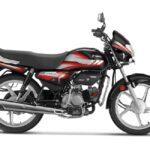
Mining operations are a complex amalgamation of heavy machinery, advanced technology, and precise engineering. At the heart of these operations lie critical components within mining machinery that drive efficiency, productivity, and safety.
Understanding these essential parts unveils the intricate workings of mining equipment and underscores their significance in the industry.
Engine
At the core of mining machinery lies the engine, often a massive diesel powerplant. These engines provide the necessary horsepower to drive various equipment, from haul trucks to excavators. Their robustness and reliability are crucial for the continuous functioning of mining operations.
Hydraulic Systems
Mining machinery heavily relies on hydraulic systems to execute powerful movements with precision. Hydraulic pumps, motors, cylinders, and valves work in tandem to control the machinery’s functions, facilitating tasks such as lifting, digging, and dumping with incredible force and accuracy.
Transmission and Drivetrain
Efficient transmission and drivetrain systems are pivotal for transferring power from the engine to the machinery’s components. Gearboxes, axles, differentials, and driveshafts ensure that the power generated by the engine is appropriately distributed, enabling optimal performance and control.
Tracks, Tires, and Undercarriage
In mining, the terrain can be challenging. Robust tracks or tires, along with a durable undercarriage system, provide stability and mobility for heavy equipment like bulldozers and loaders. These components endure immense pressure, making durability and resistance to wear essential.
Bucket, Blade, and Cutting Edges
Excavators, loaders, and dozers are equipped with buckets, blades, and cutting edges designed for various tasks. These Mining Machinery parts are constructed from hardened materials to withstand abrasion, impact, and high-stress conditions, enabling efficient material handling and earthmoving.
ROPS and Safety Features
Mining machinery is equipped with Roll Over Protection Structures (ROPS) and other safety features to safeguard operators in hazardous conditions. These safety measures aim to mitigate risks associated with potential accidents and ensure the well-being of workers.
Control Systems and Electronics
Sophisticated control systems and electronics regulate the machinery’s operation, allowing for precise control and automation. These systems monitor performance, optimize fuel consumption, and enhance efficiency while enabling remote operation in some cases.
Cooling and Filtration Systems
To prevent overheating and ensure machinery longevity, robust cooling systems are crucial. Efficient filtration systems also play a vital role in maintaining clean hydraulic fluids, lubricants, and fuel, contributing to the equipment’s reliability and performance.
Wear Parts and Maintenance Components
Regular maintenance is essential in the mining industry. Wear parts such as teeth, tracks, and bearings, along with maintenance components like filters and seals, require frequent inspection and replacement to ensure optimal functionality and avoid costly breakdowns.
Sensors and Telematics
Modern mining machinery often integrates sensors and telematics systems. These technologies provide real-time data on equipment health, performance, and location. They enable proactive maintenance, optimize operations, and enhance safety protocols.
Conclusion
The mining industry’s vitality relies significantly on these essential components within mining machinery. Each part is important in ensuring operational efficiency, safety, and productivity. Understanding and investing in the maintenance and enhancement of these core components are imperative for sustaining and advancing mining operations in a constantly evolving industry landscape.






